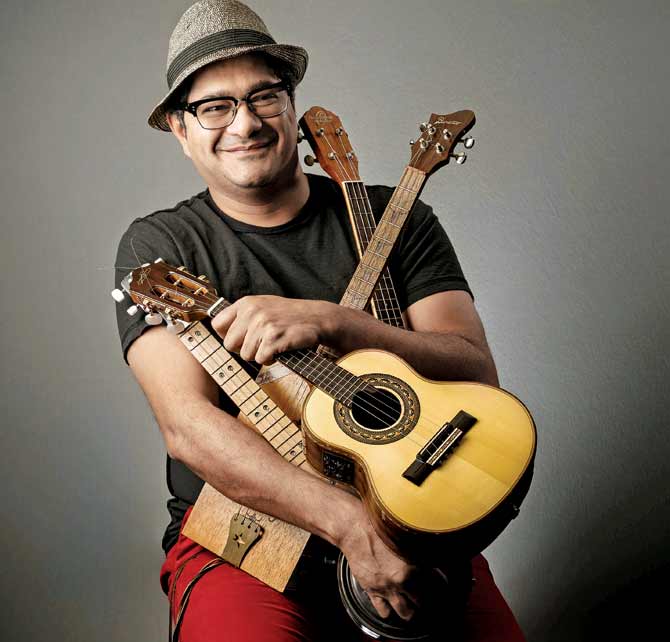Fuelled by the success of his last album, Dhruv Ghanekar is ready with three new tracks, including Revolution, that probes the changing times

Dhruv Ghanekar. Musician
![]() Q. Voyage offered a mix of sounds and influences. What are the new tracks like?
Q. Voyage offered a mix of sounds and influences. What are the new tracks like?
A. They are kind of a continuation of Voyage, taking Folk and Indian music together and turning their heads around. You could also say that it’s a step higher.
ADVERTISEMENT
 Dhruv Ghanekar. musician
Dhruv Ghanekar. musician
Q. Does that mean there’s a new album in the making?
A. Yes, I am working on a new album, and these songs are going to be a part of it. But it will be released some time next year.
Q. One of the new tracks is called Revolution. Is there a social/political message to it?
A. The track is a response to what is happening now. India is going through a big churn, socially and politically. But today’s youth is apathetic towards it. Even though they rant and cry about it on social media, they aren’t doing anything to change it. There’s a status quo and nobody wants to upset that. Everybody has got their hands on their pockets. The song aims to draw their attention to the situation, without focussing on a single issue. It’s a call to protect our fundamental rights, to get up, stand up and talk about it.
Q. Who are the artistes joining you for the performance tonight?
A. I have teamed with a new bunch of artistes for today’s performance. There’s a young MC/rapper called Deka, Kanchan Daniels, Assamese singer Kalpana Patowary, Rohan Rajadhakshya from Spud in the Box and others.
Q. Social media has given musicians a platform to reach out to the audience directly. Are you social media savvy?
A. I find the whole social media exercise terribly exhausting. You don’t want to be reporting every move of yourself. If it’s done as endorsement then it’s fine, but otherwise, it can be pressurising. I am expected to tweet about today’s gig, and I haven’t yet. But it’s a necessary evil. Today, it’s not enough to be a good musician.
Q. Your music carries varied influences, from traditional Folk sounds to Indian classical as well as international sound. Does that excite you?
A. I listen to a lot of indigenous music from other parts of the world like West Africa, Morocco and Algeria. For me that’s more exciting right now. I try to introduce this, somehow, into my music, and that is exciting — to be able to bring different cultures together. Even if you look at Indian music, it’s impossible to know everything. Every region has its set of instruments and style. So, yes, it’s exciting.
 Subscribe today by clicking the link and stay updated with the latest news!" Click here!
Subscribe today by clicking the link and stay updated with the latest news!" Click here!






